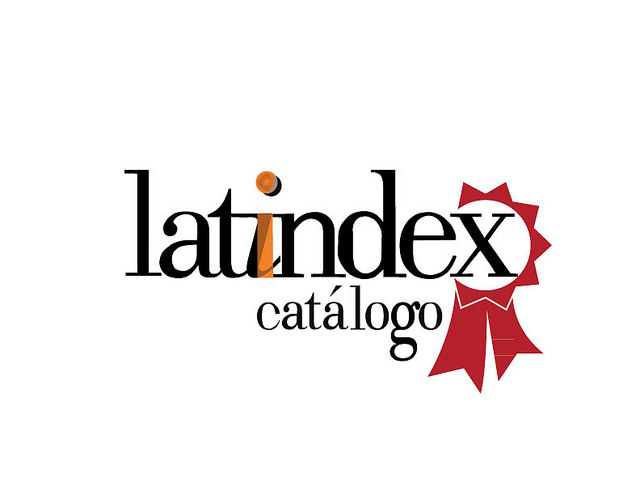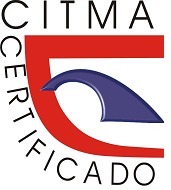openData Framework for publication of Open Data in Cuba
Keywords:
open data, transparent government, tools for cleaning and publishing data, data privacyAbstract
Open data promotes the development of society based on a technological and legal framework that contributes to transparency in the management of government and society. The publication of data allows scientists and companies to innovate based on local problems and generate improvements in services and management in various sectors. This research addresses the main concepts associated with open data, mainly focused on its influence on society. The main characteristics of the platforms for the publication of open data and the requirements of the data to be published are exposed. The analysis of the fundamental criteria identified for the selection of tools for the preparation and publication of the data made it possible to propose an adequate solution for the Cuban environment. Activities and tasks are enunciated to guarantee the quality, privacy and requirements that the data must have to be published, satisfying the ethical principles of society.
References
Abdullah, M. Z., & Arshah, R. A. (2018). A Review of Data Quality Assessment: Data Quality Dimensions from Users Perspective. Advanced Science Letters, 24(10), 7824-7829. https://doi.org/doi:10.1166/asl.2018.13025
Abella, A., Ortiz-de-Urbina-Criado, M., & De-Pablos-Heredero, C. (2018). Open data quality metrics: Barcelona open data portal case/INDICADORES DE CALIDAD DE DATOS ABIERTOS DE BARCELONA. El Profesional de la Informacion, 27(2), 375-383.
Afful-Dadzie, E., & Afful-Dadzie, A. (2017). Liberation of public data: Exploring central themes in open government data and freedom of information research. International Journal of Information Management, 37(6), 664-672. https://doi.org/10.1016/j.ijinfomgt.2017.05.009
Akyürek, H., Scholl, C., Stodden, R., Siebenlist, T., & Mainka, A. (2018). Maturity and usability of open data in North Rhine-Westphalia. Proceedings of the 19th Annual International Conference on Digital Government Research: Governance in the Data Age, 1-10.
Alamo, T., Reina, D. G., Mammarella, M., & Abella, A. (2020). Covid-19: Open-Data Resources for Monitoring, Modeling, and Forecasting the Epidemic. Electronics, 9(5), 827. https://doi.org/10.3390/electronics9050827
Alteryx. (s. f.). Alteryx. Recuperado 7 de noviembre de 2020, de https://www.alteryx.com/
Bermúdez, M. D.-C., & Jover, J. N. (2020). Gestión gubernamental y ciencia cubana en el enfrentamiento a la COVID-19. Anales de la Academia de Ciencias de Cuba, 10(2), 881.
Cheng, C., Barceló, J., Hartnett, A. S., Kubinec, R., & Messerschmidt, L. (2020). COVID-19 Government Response Event Dataset (CoronaNet v.1.0). Nature Human Behaviour, 4(7), 756-768. https://doi.org/10.1038/s41562-020-0909-7
CKAN. (s. f.-a). CKAN. Ckan. Recuperado 7 de noviembre de 2020, de https://ckan.org/
CKAN. (s. f.-b). CKAN code architecture. Recuperado 20 de enero de 2021, de https://docs.ckan.org/en/2.9/contributing/architecture.html
CKAN. (s. f.-c). Testing CKAN — CKAN 2.10.0a documentation. Testing CKAN — CKAN 2.10.0a documentation. Recuperado 21 de enero de 2021, de https://ckan.readthedocs.io/en/latest/contributing/test.html
Das, A., & Rad, P. (2020). Opportunities and challenges in explainable artificial intelligence (xai): A survey. arXiv preprint arXiv:2006.11371.
Dataverse. (s. f.). The Dataverse Project—Dataverse.org. Recuperado 19 de enero de 2021, de https://dataverse.org/
DKAN. (s. f.). DKAN Open Data Platform. Recuperado 7 de noviembre de 2020, de http://getkdkan.org/
Escandell-Sosa, V. E. (2016). Lineamientos de la Política Económica y Social del Partido y la Revolución aprobados en el VI Congreso del Partido Comunista de Cuba: Una visión desde la Economía Política. Anuario Facultad de Ciencias Económicas y Empresariales, 3, 51-60.
European Data Portal. (s. f.). What is open data | European Data Portal. Recuperado 23 de septiembre de 2020, de https://www.europeandataportal.eu/en/training/what-open-data
Flasher, R. (2019). Sunshine to Government—Opportunities for Engagement with Government Data. Journal of Emerging Technologies in Accounting, 17(1), 57-62. https://doi.org/10.2308/jeta-52654
Gillath, O., Ai, T., Branicky, M. S., Keshmiri, S., Davison, R. B., & Spaulding, R. (2020). Attachment and trust in artificial intelligence. Computers in Human Behavior, 115, 106607.
Gobierno de España. (s. f.). Datos.gob.es. Recuperado 18 de enero de 2021, de https://datos.gob.es/
Hardy, K., & Maurushat, A. (2017). Opening up government data for Big Data analysis and public benefit. Computer Law & Security Review, 33(1), 30-37. https://doi.org/10.1016/j.clsr.2016.11.003
Hartmann, P., & Henkel, J. (2020). The rise of corporate science in AI: Data as a strategic resource. Academy of Management Discoveries, 6(3), 359-381.
Hassine, S. B., & Clément, D. (2020). Open Data Quality Dimensions and Metrics: State of the Art and Applied Use Cases. En W. Abramowicz & G. Klein (Eds.), Business Information Systems Workshops (pp. 311-323). Springer International Publishing.
Henriques, A. C. V., Meirelles, F. de S., & Cunha, M. A. V. C. da. (2020). Big data analytics: Achievements, challenges, and research trends. Independent Journal of Management & Production, 11(4), 1201-1222.
Herrera-Cubides, J. F., Gaona-García, P. A., Montenegro-Marín, C. E., Varón-Capera, Á., et al. (2019). Confidence level evaluation of LOD resources on CKAN instances. Visión electrónica, 13(2).
Herrera-Cubides, J. F., Gaona-García, P. A., & Orjuela, K. G. (2017). A view of the web of data. Case study: Use of services CKAN. Ingeniería, 22(1), 46-64.
JUNAR. (s. f.). Junar Data Platform. Recuperado 7 de noviembre de 2020, de https://www.junar.com/
Kassen, M. (2017). Understanding transparency of government from a Nordic perspective: Open government and open data movement as a multidimensional collaborative phenomenon in Sweden. Journal of Global Information Technology Management, 20(4), 236-275. https://doi.org/10.1080/1097198X.2017.1388696
Krishnamurthy, R., & Awazu, Y. (2016). Liberating data for public value: The case of Data. Gov. International Journal of Information Management, 36(4), 668-672.
L’Heureux, A., Grolinger, K., Elyamany, H. F., & Capretz, M. A. M. (2017). Machine Learning With Big Data: Challenges and Approaches. IEEE Access, 5, 7776-7797. https://doi.org/10.1109/ACCESS.2017.2696365
Medel-Ramírez, C., & Medel-Lopez, H. (2020). Data Mining for the Study of the Epidemic (SARS-CoV-2) COVID-19: Algorithm for the Identification of Patients (SARS-CoV-2) COVID 19 in Mexico. Available at SSRN 3619549. http://dx.doi.org/10.2139/ssrn.3619549
Melin, P., Monica, J. C., Sanchez, D., & Castillo, O. (2020). Multiple ensemble neural network models with fuzzy response aggregation for predicting COVID-19 time series: The case of Mexico. Healthcare, 8(2), 181.
Milic, P., Veljkovic, N., & Stoimenov, L. (2018). Comparative analysis of metadata models on e-government open data platforms. IEEE Transactions on Emerging Topics in Computing, 1-1. https://doi.org/10.1109/TETC.2018.2815591
Ministerio de Economía y Planificación. (2020). Cuba y su desafío económico y social [Guvernamental]. Ministerio de Economía y Planificación de Cuba. Recuperado de https://www.mep.gob.cu/es/documento/cuba-y-su-desafio-economico-y-social
Mueller-Langer, F., & Andreoli-Versbach, P. (2018). Open access to research data: Strategic delay and the ambiguous welfare effects of mandatory data disclosure. Information Economics and Policy, 42, 20-34.
Naser, A., & Rosales, D. (2016). Panorama regional de los datos abiertos: Avances y desafíos en América Latina y el Caribe. Serie Gestión Pública. Serie Gestión Pública, 86, 125.
Nasr, M., Shaaban, E., & Gabr, M. I. (2020). Data Quality Dimensions. En A. Z. Ghalwash, N. El Khameesy, D. A. Magdi, & A. Joshi (Eds.), Internet of Things—Applications and Future (pp. 201-218). Springer Singapore.
Open Knowledge Foundation. (s. f.). The Open Definition—Open Definition—Defining Open in Open Data, Open Content and Open Knowledge. Recuperado 11 de enero de 2021, de https://opendefinition.org/
Opendatasoft. (s. f.). Opendatasoft—Make your data bright. Recuperado 19 de enero de 2021, de https://www.opendatasoft.com/es/
OpenRefine. (s. f.). OpenRefine. Recuperado 7 de noviembre de 2020, de https://openrefine.org/
Pascual, A. F. R., Sánchez, C. S., y Borreguero, J. M. R. (2020). Los datos abiertos: Definición técnica de un concepto clave para la Transformación Digital: Open data: technical definition of a key concept for Digital Transformation. Revista Cubana de Transformación Digital, 1(2), 7-22.
Paxata. (s. f.). Paxata. Recuperado 7 de noviembre de 2020, de https://www.paxata.com/
Petrova-Antonova, D., & Tancheva, R. (2020). Data Cleaning: A Case Study with OpenRefine and Trifacta Wrangler. En M. Shepperd, F. Brito e Abreu, A. Rodrigues da Silva, & R. Pérez-Castillo (Eds.), Quality of Information and Communications Technology (pp. 32-40). Springer International Publishing. https://doi.org/10.1007/978-3-030-58793-2_3
Pfenninger, S., DeCarolis, J., Hirth, L., Quoilin, S., & Staffell, I. (2017). The importance of open data and software: Is energy research lagging behind? Energy Policy, 101, 211-215.
Quintanilla, G., y Gil-García, J. R. (2016). Gobierno abierto y datos vinculados: Conceptos, experiencias y lecciones con base en el caso mexicano. Revista del clad Reforma y Democracia, 65, 69-102.
Rantanen, M. M., Hyrynsalmi, S., & Hyrynsalmi, S. M. (2019). Towards Ethical Data Ecosystems: A Literature Study. 2019 IEEE International Conference on Engineering, Technology and Innovation (ICE/ITMC), 1-9. https://doi.org/10.1109/ICE.2019.8792599
Ronzhyn, A., & Wimmer, M. A. (2019). Literature review of ethical concerns in the use of disruptive technologies in government 3.0. The Thirteenth International Conference on Digital Society and eGovernments, ICDS, 85-92.
Rudmark, D. (2020). Open Data Standards: Vertical Industry Standards to Unlock Digital Ecosystems. 53rd Hawaii International Conference on System Sciences. EE.UU.
Ruijer, E., Grimmelikhuijsen, S., & Meijer, A. (2017). Open data for democracy: Developing a theoretical framework for open data use. Government Information Quarterly, 34(1), 45-52.
Ruijer, E., Grimmelikhuijsen, S., van den Berg, J., & Meijer, A. (2020). Open data work: Understanding open data usage from a practice lens. International Review of Administrative Sciences, 86(1), 3-19.
Ruijer, E., & Meijer, A. (2020). Open Government Data as an Innovation Process: Lessons from a Living Lab Experiment. Public Performance & Management Review, 43(3), 613-635. https://doi.org/10.1080/15309576.2019.1568884
Sadiq, S., & Indulska, M. (2017). Open data: Quality over quantity. International Journal of Information Management, 37(3), 150-154. https://doi.org/10.1016/j.ijinfomgt.2017.01.003
Safarov, I., Meijer, A., & Grimmelikhuijsen, S. (2017). Utilization of open government data: A systematic literature review of types, conditions, effects and users. Information Polity, 22(1), 1-24.
Salud, S. de. (s. f.). Datos Abiertos Dirección General de Epidemiología. gob.mx. Recuperado 18 de enero de 2021, de http://www.gob.mx/salud/documentos/datos-abiertos-152127
Samson Oni, Zhiyuan Chen, Susan Hoban, & Onimi Jademi. (2019). A Comparative Study of Data Cleaning Tools. International Journal of Data Warehousing and Mining (IJDWM), 15(4), 48-65. https://doi.org/10.4018/IJDWM.2019100103
Socrata. (s. f.). Socrata. Recuperado 7 de noviembre de 2020, de https://www.tylertech.com/products/socrata
Straale, J., & Lindén, H. (2014). An evaluation of platforms for open government data.
Trifacta. (s. f.). Trifacta. Recuperado 7 de noviembre de 2020, de https://www.trifacta.com/
Winn, J. & others. (2013). Open data and the academy: An evaluation of CKAN for research data management.
Downloads
Published
How to Cite
Issue
Section
License
Copyright (c) 2021 Reynaldo Alvarez Luna, Héctor Raúl González Diez, Alberto Torres Reyes, Alain Rodriguez Torres

This work is licensed under a Creative Commons Attribution-NonCommercial 4.0 International License.













